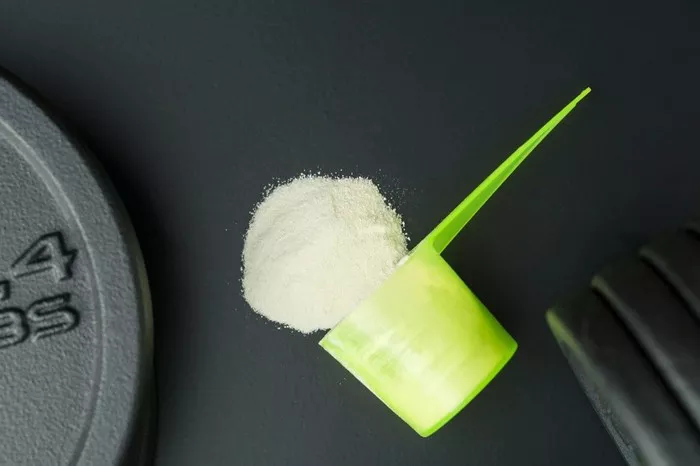In the quest for healthier hair, individuals often turn to a variety of remedies and treatments, some of which are backed by scientific evidence, while others are based on anecdotal claims and popular myths. One such myth that has gained traction in recent years is the idea of putting prenatal vitamins in shampoo to promote hair growth and improve hair health. But does this practice actually work, or is it simply a case of wishful thinking? In this comprehensive guide, we’ll explore the truth behind the myth of prenatal vitamins in shampoo, examining the science behind hair growth and the potential effectiveness of this unconventional approach.
Understanding Prenatal Vitamins
Prenatal vitamins are dietary supplements specifically formulated for pregnant individuals to support maternal health and fetal development during pregnancy. These vitamins typically contain a combination of essential nutrients, including:
Folic acid: Important for preventing birth defects and supporting fetal neural tube development.
Iron: Necessary for red blood cell production and preventing iron deficiency anemia during pregnancy.
Calcium: Essential for bone health and development, both for the mother and the developing fetus.
Vitamin D: Important for calcium absorption and bone health.
Omega-3 fatty acids: Support fetal brain and eye development.
While prenatal vitamins are designed to meet the unique nutritional needs of pregnant individuals, some people have speculated that the high nutrient content of these vitamins could also benefit hair health when applied topically to the scalp.
The Science of Hair Growth
Before delving into the effectiveness of prenatal vitamins in shampoo, it’s important to understand the basics of hair growth and the factors that influence it. Hair growth occurs in three distinct phases:
Anagen phase: This is the active growth phase, during which hair follicles produce new hair cells. The length of the anagen phase determines the length of the hair.
Catagen phase: In this transitional phase, hair growth slows down, and the hair follicle shrinks.
Telogen phase: This is the resting phase, during which the hair follicle remains dormant before shedding and entering the next anagen phase.
Several factors can influence hair growth, including genetics, hormones, nutrition, and overall health. While certain nutrients, such as vitamins and minerals, play a role in supporting healthy hair growth when consumed internally, their effectiveness when applied topically to the scalp is less clear.
The Myth of Prenatal Vitamins in Shampoo
The idea of adding prenatal vitamins to shampoo to improve hair health and promote growth likely stems from the belief that the high nutrient content of prenatal vitamins could nourish the scalp and hair follicles, leading to stronger, healthier hair. However, there is limited scientific evidence to support this claim.
Proponents of this practice often suggest crushing prenatal vitamin tablets and mixing them with shampoo to create a nutrient-rich hair treatment. They argue that the vitamins will be absorbed through the scalp and provide essential nutrients directly to the hair follicles, thereby promoting growth and improving hair quality.
The Lack of Scientific Evidence
Despite the popularity of the prenatal vitamins in shampoo myth, there is little scientific evidence to support its effectiveness. While certain nutrients, such as biotin, have been studied for their potential role in promoting hair growth and improving hair quality, the evidence is mixed, and more research is needed to establish clear cause-and-effect relationships.
Additionally, the absorption of nutrients through the scalp is limited, and it’s unlikely that the vitamins in shampoo would penetrate deeply enough into the skin to reach the hair follicles and exert a significant effect on hair growth. Most of the active ingredients in shampoo are designed to cleanse the hair and scalp rather than provide nutrients to support hair growth.
Potential Risks and Drawbacks
While adding prenatal vitamins to shampoo may seem harmless, there are potential risks and drawbacks to consider:
Skin irritation: Some individuals may experience skin irritation or allergic reactions when applying prenatal vitamins topically to the scalp, especially if they have sensitive skin or are allergic to any of the ingredients in the vitamins.
Residue buildup: Crushing prenatal vitamin tablets and mixing them with shampoo could result in residue buildup on the scalp and hair, potentially leading to greasiness or product buildup over time.
Lack of regulation: Prenatal vitamins are intended for oral consumption and are regulated as dietary supplements by the Food and Drug Administration (FDA). There is no regulation or oversight for using prenatal vitamins in shampoo, and the safety and efficacy of this practice have not been evaluated.
Effective Strategies for Healthy Hair
Instead of relying on unproven remedies such as adding prenatal vitamins to shampoo, individuals seeking to improve hair health and promote growth can focus on evidence-based strategies supported by scientific research. Some effective strategies for healthy hair include:
Balanced diet: Eating a balanced diet rich in vitamins, minerals, and protein is essential for supporting overall health and hair growth. Foods such as fruits, vegetables, lean proteins, whole grains, and healthy fats provide the nutrients needed for healthy hair.
Proper hair care: Maintaining proper hair care practices, such as gentle shampooing, conditioning, and avoiding excessive heat styling and chemical treatments, can help minimize damage and breakage and promote healthy hair growth.
Stress management: Chronic stress can contribute to hair loss and thinning. Practicing stress management techniques such as meditation, yoga, deep breathing exercises, and regular physical activity can help reduce stress levels and support healthy hair.
Scalp health: Keeping the scalp clean and healthy is important for promoting optimal hair growth. Regular scalp massage, exfoliation, and using gentle, nourishing hair products can help maintain scalp health and support hair growth.
Conclusion
While the myth of adding prenatal vitamins to shampoo may sound promising, the reality is that there is little scientific evidence to support its effectiveness. Hair growth is influenced by a variety of factors, including genetics, hormones, nutrition, and overall health, and there is no quick fix or miracle remedy for promoting hair growth.
Instead of relying on unproven remedies, individuals seeking to improve hair health and promote growth should focus on evidence-based strategies such as maintaining a balanced diet, practicing proper hair care, managing stress, and supporting scalp health. By adopting healthy lifestyle habits and seeking guidance from healthcare professionals when needed, individuals can achieve healthier, more vibrant hair without resorting to unproven or potentially risky treatments.
[inline_related_posts title=”You Might Be Interested In” title_align=”left” style=”list” number=”6″ align=”none” ids=”7252,7126,7329″ by=”categories” orderby=”rand” order=”DESC” hide_thumb=”no” thumb_right=”no” views=”no” date=”yes” grid_columns=”2″ post_type=”” tax=””]

































